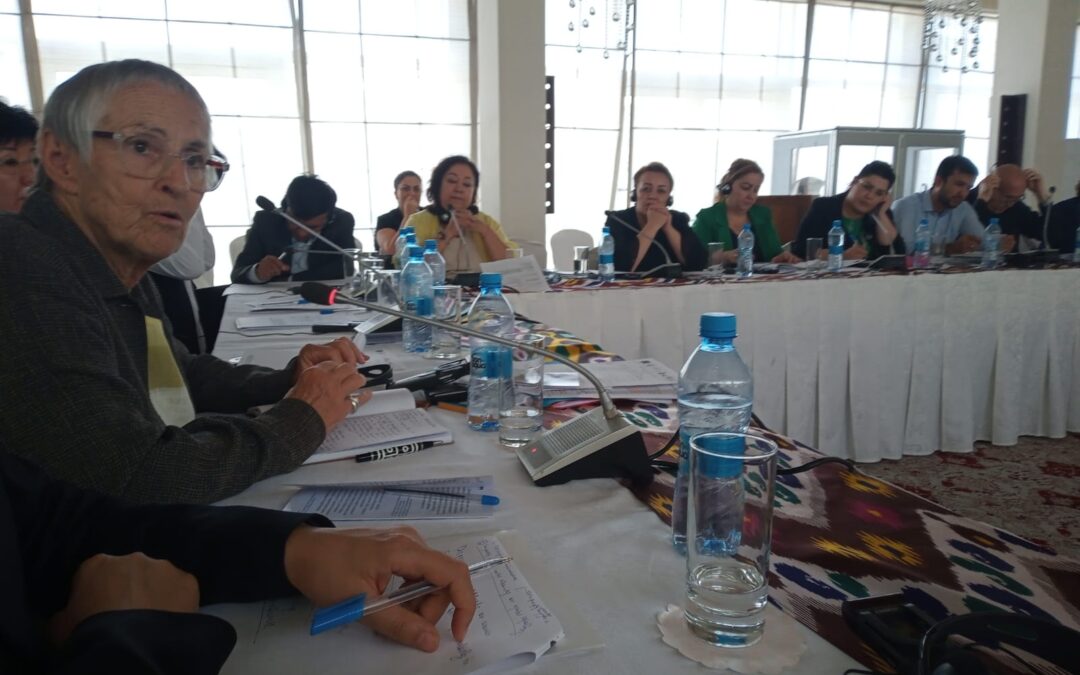

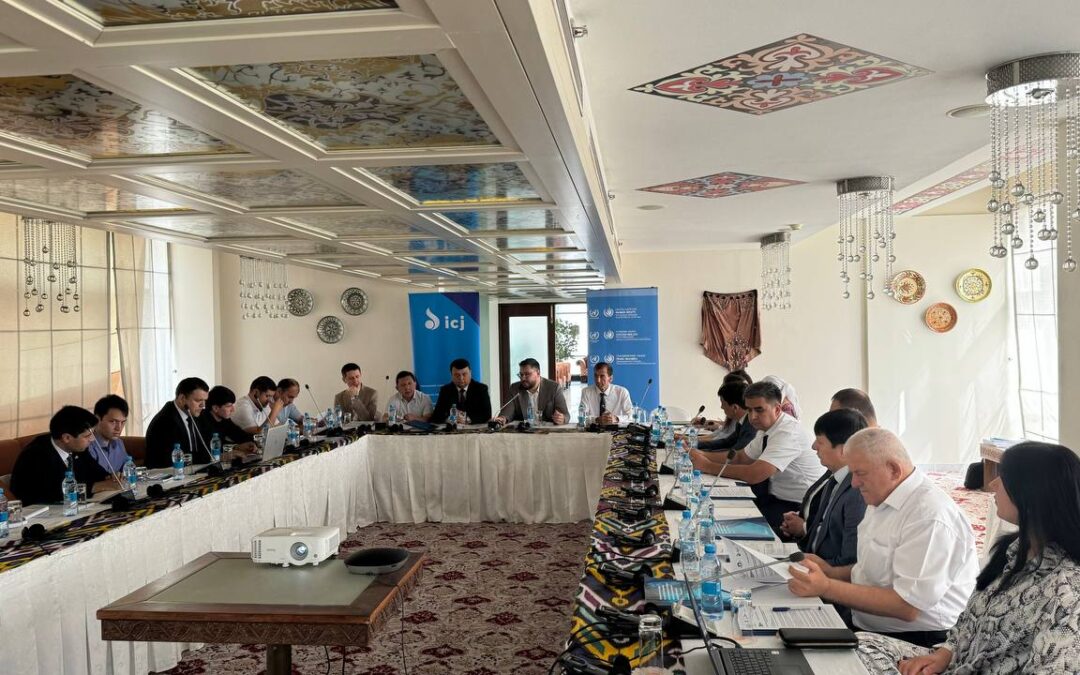
Tajikistan: ICJ and partners host roundtable on enhancing protection against arbitrary detention
On 31 July 2024, the International Commission of Jurists (ICJ), the Office of the United Nations High Commissioner for Human Rights (OHCHR) Regional Office for Central Asia (ROCA), the Supreme Court of the Republic of Tajikistan and the Coalition against Torture and...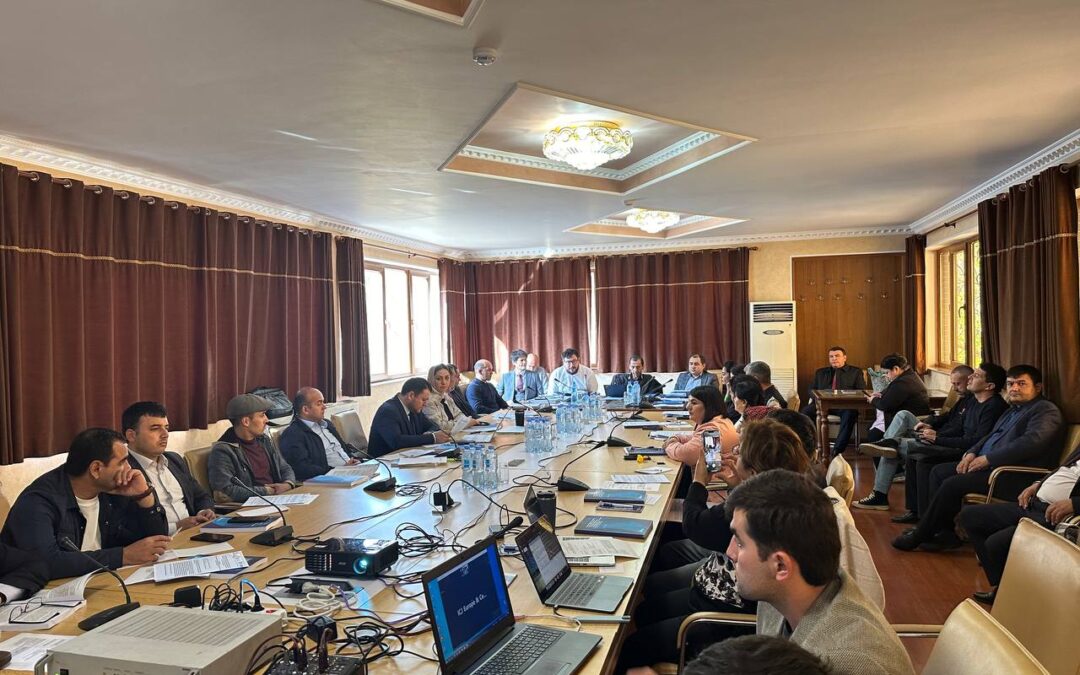
Tajikistan: round table on lawyers’ effective use of international law and mechanisms
The ICJ, in cooperation with the Union of Lawyers of Tajikistan, the Office of the High Commission of Human Rights (OHCHR) Regional Office for Central Asia (ROCA), and the Organization for Security and Cooperation in Europe (OSCE) in Dushanbe convened a round table in Dushanbe, Tajikistan, titled “The Use of International Law and International Mechanisms by Lawyers in Tajikistan”.
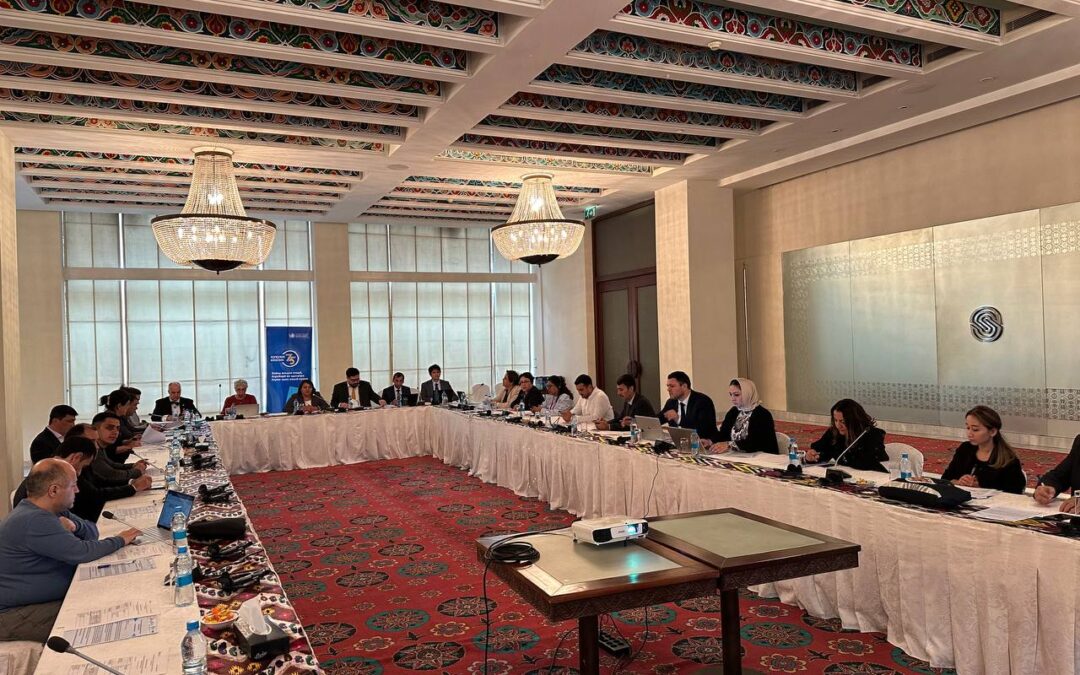
Tajikistan: Round Table on the Application of International Law in Judicial Systems
Today, the International Commission of Jurists (ICJ), in collaboration with the Supreme Court of the Republic of Tajikistan the Office of the High Commission of Human Rights (OHCHR) Regional Office for Central Asia (ROCA), and the Organization for Security and Cooperation in Europe (OSCE)in Dushanbe, has convened a round to discuss the application of international law by national courts. The event aimed to enhance the capacity of the judiciary to apply international standards in Tajikistan.
The discussions at the round table were focused on international human rights mechanisms and instruments, the binding nature of international treaties, and the current use of international law in Tajik courts. The participants examined these standards in relation to Tajikistan’s international treaty obligations, with the objective of improving the judiciary’s ability to effectively apply international jurisprudence and principles.
The event provided a platform for participants to discuss the practical implementation of international legal norms in the adjudication process in other national contexts and to share strategies to address the challenges of such integration. The round table also facilitated a critical analysis of the reforms necessary for effective use of international standards in national legal procedures.
The event addressed the broader implications of applying international law, considering its impact on the rule of law and public trust in the justice system. There was a clear consensus on the need to draft recommendations that could guide the judiciary in applying international law.
The round table discussions were notably informed by a recent ICJ report calling for comprehensive judicial reform in Tajikistan. Published in December 2020, the report titled “Neither Check nor Balance: the Judiciary in Tajikistan,” provided an in-depth analysis of the organisation and functioning of the judiciary in Tajikistan and its capacity to administer justice and uphold human rights.
The ICJ report’s conclusion that acquittals in criminal trials are exceedingly rare underscored a systemic failure to ensure judicial independence, thereby highlighting the urgency of the reform. It was recognized that for Tajikistan to fulfil its international legal obligations and to provide effective remedies for human rights violations, reforms must be initiated and practically implemented to safeguard against practices that undermine the independence of the judiciary.
Attachment: Briefing paper on RT for judges on Oct 27 2023 in Dushanbe
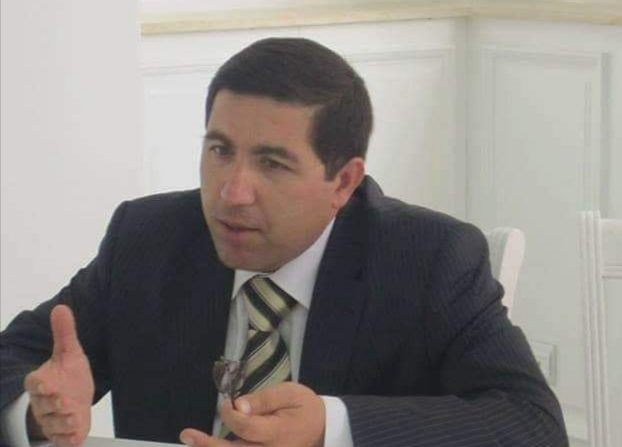
Tajikistan: Lawyer Buzurgmehr Yorov must immediately be released in line with UN decision
The International Commission of Jurists (ICJ) has renewed its call for the immediate release of Buzurgmehr Yorov, an imprisoned Tajikistan lawyer, and expressed deep concern over his recent additional sentencing. This follows the decision by Vahdat city court on 10 July 2023 to add an extra ten years to Yorov’s existing sentence, accusing him of large-scale fraud.




